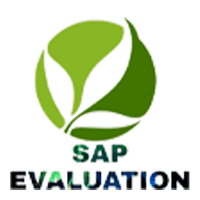Introduction: Shedding Light on SAP Evaluations
Substance Abuse Professional (SAP) evaluations, also known as substance abuse evaluations or addiction assessments. Play a fundamental role in diagnosing substance use disorders and charting the course for recovery. These comprehensive screenings are designed to assess the extent of an individual’s substance use and its impact on their life, serving as a critical first step towards treatment and recovery.
The Process of a SAP Evaluation and What it Involves
A SAP evaluation is a multi-faceted process that involves several key steps. It begins with a thorough drug and alcohol assessment, where the individual’s substance use history is examined in detail. The evaluation also includes an assessment of the individual’s mental and physical health, as well as their social and environmental circumstances. The addiction evaluation criteria are broad and comprehensive, using a variety of substance use disorder assessment tools to ensure an accurate diagnosis.
Key Components of a Comprehensive SAP Evaluation
A comprehensive SAP evaluation consists of several key components. First, a detailed substance abuse history is obtained, documenting the types of substances used, the duration of use, and the impact on the individual’s life. Screening for co-occurring disorders is also an essential part of the evaluation. As many individuals with substance use disorders also suffer from mental health conditions. Physical health is assessed as well, as substance abuse can often lead to a host of physical health issues.
What to Expect During a SAP Evaluation Appointment
During a SAP evaluation appointment, you can expect to be asked a series of questions about your substance use, mental and physical health, and personal life. These questions are designed to help the evaluator gain a comprehensive understanding of your situation. Remember, confidentiality is a cornerstone of substance abuse assessments – everything you share with the evaluator stays within the confines of the professional setting. The evaluator’s role is to provide a safe, non-judgmental space for you to share your experiences and concerns.
The Importance of Honesty and Open Communication in SAP Evaluations
Honesty and open communication are crucial during SAP evaluations. The more accurate information the evaluator has, the better they can tailor treatment recommendations to your specific needs. Accurate self-disclosure also helps build trust with your evaluator, which is a key factor in successful recovery. Remember, the evaluation isn’t about passing or failing – it’s about understanding your situation and finding the best path towards recovery.
Conclusion: Empowering Yourself with Knowledge about SAP Evaluations for Better Recovery Results
Understanding the SAP evaluation process can be empowering. It equips you with the knowledge needed to navigate your recovery journey effectively. By knowing what to expect, being honest and open during your evaluation, and trusting the process, you can set the stage for successful recovery. Remember, SAP evaluations are a tool designed to help you, not to judge you. Embrace the process, trust the professionals, and take your first steps towards recovery with confidence.


